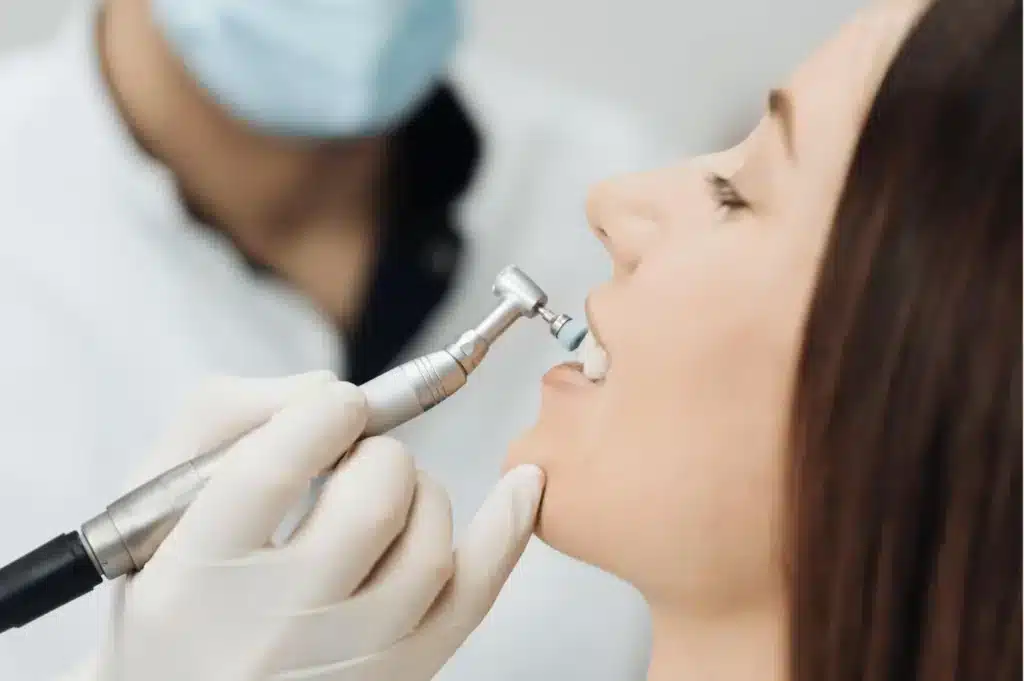Is there a yellow-brown outline near your gum line? Dental scaling can be the solution you need. That yellowish outline near your gum line is called tartar deposit or calculus.
Scaling is the procedure dentists perform to remove it. Continue reading to learn more about this process and its significance for oral health.
Dental Scaling
It is an essential deep cleaning procedure beyond regular brushing and flossing to maintain optimal dental hygiene.
During this professional cleaning, dentists utilize specialized tools, such as a scaler, to effectively remove stubborn tartar and plaque deposits along the gum line, ensuring a healthier oral environment.
Does Scaling Weaken teeth?
The answer is No. The belief that it weakens teeth is a prevalent myth, with over 40% of the population holding this misconception. However, research proves otherwise. It is a beneficial procedure that enhances oral hygiene by effectively removing factors contributing to gum diseases and other dental issues. Any sensation of weakened teeth after the procedure is likely due to the removal of plaque buildup, not the scaling procedure itself. In reality, it helps improve overall dental health and should not be feared.
Does Scaling Cause Teeth Sensitivity?
Another common misunderstanding is that scaling leads to teeth sensitivity. As the harmful elements are removed during the process, your teeth may become temporarily sensitive to the oral environment. However, this temporary sensation tends to fade away gradually over time. It is important to remember that short-term sensitivity is a positive sign of the procedure’s effectiveness in eliminating harmful substances and improving oral health.

Does Scaling Increase Gap Between Teeth?
The procedure does not cause an increase in the gap between your teeth. The presence of tartar between the teeth due to gum disease can give the illusion of a narrower gap. When dentists remove the tartar during the procedure, you may temporarily feel like the gap has widened. Still, it is simply the removal of accumulated substances that creates the appearance of a narrower space. The actual size of the gap between your teeth remains unchanged after scaling.
Is Scaling Painful?
Dental scaling is a painless and non-invasive procedure. The only sensation you’ll experience is the scraping sensation as the dentist removes tartar and plaque from your teeth. While it may not be the most comfortable feeling, it is entirely bearable. It can be done without sedation or anesthesia, but your dentist might apply numbing cream, if needed, to minimize discomfort based on your tolerance level.
Conclusion
Choose wisely between a few minutes of discomfort during dental scaling or the unbearable pain of gum disease. Schedule a dental appointment with us to avoid potential pain and significant dental expenses in the future.


